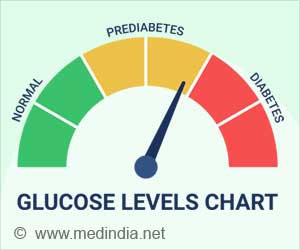Pregnant mother’s obesity is associated with a heightened risk of bowel cancer in her adult children, revealed study.
- Overweight or obesity in mothers during pregnancy increases the risk of colorectal cancer in offspring
- The global burden of bowel cancer is expected to increase by 60% to more than 2.2 million new diagnoses and 1.1 million deaths by 2030
- Fetal exposure to obesity in the womb may also have a role in bowel cancer risk
TOP INSIGHT
Overweight and obesity in mothers during pregnancy are associated with a more than doubling in the risk of bowel cancer in the offspring.
Fetal programming is thought to be a factor in several health conditions across the life course, including cardiovascular disease and diabetes.
To explore this further, the researchers drew on more than 18,000 mother and child pairs from the Child Health and Development Studies (CHDS) at the Public Health Institute in Oakland, California, to see if maternal obesity, pregnancy weight gain, and high birthweight might be associated with a heightened risk of bowel cancer in adulthood.
At enrolment (1959-66), mothers provided background information, while details of prenatal visits, diagnosed conditions, and prescribed medications, were gleaned from their medical records, from 6 months before pregnancy through to delivery.
Mothers’ weight (BMI) was classified as: underweight (under 18.5); healthy (18.5–24.9); overweight (25– 29.9); and obese (30 or above).
Birthweight was categorised as low if 2000 g or below; average if between 2000 and 3999 g; and high as anything above that.
Most of the 18751 children (48%) were born in the early 1960s. About a third (34%) were racial/ethnic minorities, and half (52%) came from families with an annual income below the national average.
During the monitoring period, 68 were diagnosed with bowel cancer between 1986 and 2017, when aged between 18 and 56. About half (48.5%) were diagnosed before the age of 50. Nearly 1 in 5 had a family history of bowel cancer.
A higher proportion of obese (16%) mothers had offspring weighing 4000 g or more at birth than did underweight/healthy weight (7.5%) or overweight (11%) mothers.
Bowel cancer rates were 16.2/100,000, 14.8/100,000, and 6.7/100,000 in the adult offspring of obese, overweight, and underweight/healthy weight mothers, respectively.
While early weight gain wasn’t associated with bowel cancer risk, total weight gain was, with a doubling in risk for a gain of 23-29 pounds. However, a high rate of early weight gain was associated with a quadrupling in risk among the offspring of mothers whose total weight gain had been low, but not among those whose total weight gain had been high.
The risk was also heightened among those whose birthweight was 4000 g or more compared with those within a healthy weight range at birth.
This is an observational study, and as such, can’t establish cause. Factors common to both mother and child, such as diet and microbiome, which weren’t captured in the CHDS, may have influenced the results. Similarly, offspring weight wasn’t measured throughout adulthood.
But the findings suggest that “the well-established relationship between obesity and colorectal cancer may have origins in periods that begin before birth,” say the researchers.
Nutrients received in the womb may permanently alter the structure and function of adipose (fat) tissue, appetite regulation and metabolism, while excess exposure to insulin and growth hormone may affect insulin sensitivity, they explain.
“Our results provide compelling evidence that in utero events are important risk factors of [colorectal cancer] and may contribute to increasing incidence rates in younger adults,” they write, adding:” There may also be other as yet unknown exposures during gestation and early life that give rise to this disease and warrant further study.”
“Given population trends in maternal obesity, which has multiplied in prevalence by nearly six since the 1960s, we may see a growing burden of early-onset [bowel cancer] for decades to come,” they conclude.
Source-Eurekalert
 MEDINDIA
MEDINDIA





 Email
Email










